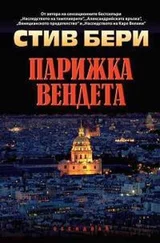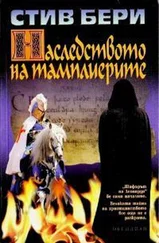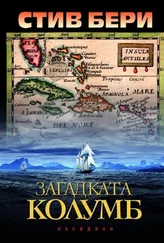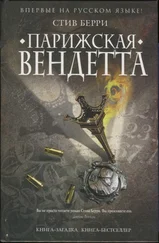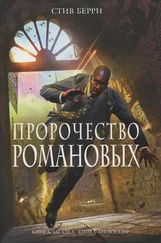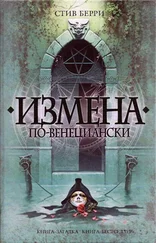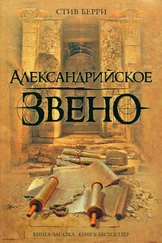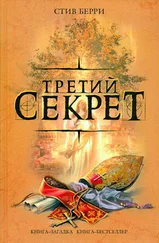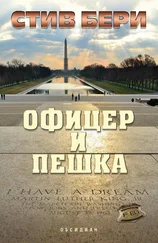Cassiopeia came close.
“The toy of choice for any budding Nazi in the 1930s,” he said.
“And here it is, eighty-five years later, in the middle of Chile.”
Something shattered from far off in the house.
They whirled toward the doorway, guns in hand.
He quickly pocketed the toy.
“Company,” he whispered.
CHAPTER FOURTEEN
SANTIAGO, CHILE
4:30 P.M.
Josef Engle strolled down a tree-lined boulevard, following his target, surprised at the destination.
Where the antique-book store once stood.
The spot was located near the Plaza de Armas, in the heart of the city, about midway down an arcade of picturesque boutiques. Next door sat a café that displayed an assortment of lovely Camembert and cheddar cheeses in its plate-glass window. He’d dined there several times on past visits and greatly enjoyed the spicy sausage and salami, which the owner bragged were made on-site. He doubted the claim, yet admired the pander, since brashness was a quality he’d learned to accept.
He knew Cotton Malone and Cassiopeia Vitt were in Chile. Yesterday he’d been assured that everything was ready in the lake district, and a preliminary report should be making its way to him anytime.
Which was good.
Good preparation led to good results.
From a cathedral at the far end of the boulevard a bang of bells signaled half past the hour. Storm clouds were rolling in off the volcanoes to the west, the late-afternoon sun gradually fading behind a bank of thick cumulus. Rain would surely arrive by nightfall.
His target stopped and studied the street.
The bookshop was gone.
Exploded a few years back when some nosy American eyes and ears had crept too close. Its owner, a Chilean named Gamero Dichato, had been the son of a German immigrant. His father, along with countless others, had filtered into Chile in the difficult years after World War II. Some possessed relatives living in the area, descendants of the original German émigrés who, with the encouragement of the government, had flooded into central Chile during the late 19th century. Gamero’s father had been a high-level diplomat in the Nazi foreign service, blessed with living abroad during the war, mostly in South America, capable afterward of denying, with impunity, any involvement with war crimes. The bookshop had been a magnet for the faithful, one of many repositories scattered across South America. Unfortunately, thanks to an American agent named Jonathan Wyatt, it had become necessary to sacrifice Gamero.
Nothing new there.
The web had always required protection.
So Gamero had been killed and his shop burned to the ground, all in an effort to dissuade any further investigation. Back then the idea had been to maintain secrecy. Now the goal was something altogether different.
His target apparently was familiar with that prior situation. An investigator, hired by Marie Eisenhuth, here in Chile now for over a week, his every move had been monitored. Perhaps the American influence explained his newfound knowledge? They would certainly know of this site. Access to that level of intelligence was precisely what he’d warned Pohl about.
He noticed that the land upon which the bookstore had stood remained vacant. Odd that no one had purchased the property and rebuilt something. Once there’d been a vault inside the old shop that protected eight filing cabinets filled with information from long ago, every page organized and indexed. Documents far too dangerous to be removed from Chile. Much had gone into their secretion, and the last thing anyone needed was for some customs agent to request a crate inspection or, even worse, for the materials to be lost or destroyed. So repositories were created throughout Chile, Argentina, Paraguay, and Brazil. Only a few then knew their exact locations, and even fewer knew them now.
Those file cabinets were gone.
Burned in the fire.
Most of their contents, though, had been preserved.
And thank goodness, since they were needed once again.
He’d personally supervised the destruction of Gamero’s shop, hating that the man had to die, but understanding its necessity.
Now he was back.
In need of more bait to attract more predators.
He’d taken an early supper in one of the local picadas, the atmosphere friendly and relaxed, the tables full of families. He wondered what drew him to such tranquility. Perhaps it was the instability of his own life, a mother he hardly knew and an unknown father. His stepfather had been an ardent communist who assimilated his new family into eastern society. Eventually they all became like the state, emotionless and sedate. From childhood he’d been taught that results were all that counted. And at primary school, then secondary, the military, and finally in the Stasi, he’d performed and become noticed. His current benefactor, Theodor Pohl, was a lot like his former communist bosses. Amoral, relentless, with absolutely no conscience.
Which made things so much easier.
Principles had a nasty way of interfering with results.
His stomach burped from the empanadas he’d enjoyed earlier. The waiter had recommended a filling of minced beef, onions, olives, and a hard-boiled egg, and the suggestion turned out to be excellent. He’d enjoyed three of the pastries and, to remind him of home, his dessert had been a crumb cake topped with fresh whipped cream. The Chileans called the sweet küchen, one of many reminders of the German influence that persisted throughout the country. He’d always called it mit schlag and, as a child, he recalled that even the communists could not ruin its enjoyment.
The evening loomed chilly. Nearly winter in the Southern Hemisphere. He’d spent an enormous amount of time traveling Chile, Argentina, and Brazil. A lot like Germany, just with different expectations. Public officials were, overall, quite negotiable. Thank goodness. Pohl’s demand for perfection meant he needed friends in certain places.
Particularly now.
They were on a tight schedule.
His target moved on, walking down the street.
Keeping pace with both him and the two Americans in the south was imperative. But as Pohl had noted about Malone and Vitt and this investigator, “Let’s make sure they find his body.”
Indeed.
That should not be a problem.
CHAPTER FIFTEEN
Cassiopeia assumed a position right of the doorway. Cotton crept left. The crashing sounds had not been repeated. Her gun led the way as she slipped from the room. The corridor ahead was cast in deep shadows. A chill swept over her from both the unknown and the stale air. They inched forward to the end of the passageway, stopping in the foyer.
A sound came again. Scraping.
From the right.
She eased past Cotton, crouched low, then glided across the darkened foyer to an archway that opened into what was once surely a stately parlor. A steely determination filled her gaze, her weapon aimed ahead. She was alert and tense, but not afraid, especially with Cotton covering her.
Another sound. Metal on metal.
From the rear of the house.
There were two inside?
Her gaze focused right, to the corridor that led back to where they’d entered through the kitchen. She motioned that Cotton should concentrate on the parlor, and she’d take the other visitor. She did not want their flank unprotected. Cotton nodded in understanding.
She crept down the hall and decided a rushing advance might give her an advantage, particularly after whoever it was continued to announce their presence with a steady rat-tat-tat. She sucked a breath, readied the gun, then bolted into the kitchen.
On one of the counters, three meters away, a puma stared back at her. The graceful cat was about a meter long with a tail half its length. Its small head was topped with rounded ears, the coat a tawny color, lighter underneath, with a white chin and throat.
Читать дальше

